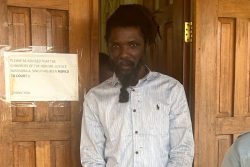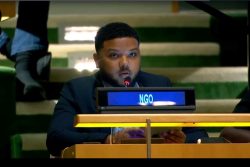CAIRO, (Reuters) – Men in plain clothes armed with swords and petrol bombs attacked protesters in Cairo last night during a demonstration demanding reform of security services with a reputation for brutality, witnesses said.
Dozens of men wielding knives and machetes and hurling bricks and petrol bombs confronted protesters at the headquarters of Egypt’s state security, a force whose abuses fuelled an uprising that toppled Hosni Mubarak, they said.
It appeared to be the first time armed men in plain clothes had deployed in force against reform activists in central Cairo since Mubarak was forced to step down and hand power to the military, which has charted a course to democratic elections. The scenes evoked attacks on protesters in Tahrir Square by men claiming loyalty to Mubarak during the 18-day uprising that led to his downfall. Since then, activists have pressed demands for deeper reform, including a major shake-up of the police.
Egyptian soldiers, on the streets since the start of the uprising, fired into the air for several minutes to disperse the protesters. As they ran, the protesters were confronted by men they described as thugs.
The state news agency said the demonstrators were trying to break into the building.
A branch of the Interior Ministry, critics of the state security apparatus say it functions as a domestic spy agency.
Its networks penetrated deep into society, monitoring citizens and tapping phone lines. Emergency laws give its officers wide powers to act against government opponents.
In the last two days, protesters have broken into 11 offices belonging to the state security apparatus across the country, seizing documents which they feared would be destroyed by officers to cover up abuses perpetrated by the force.
“The army started firing in the air to disperse us,” said Mohammed Fahmy. “We tried to run away but we were met by 200 thugs in plain clothes carrying sharp weapons on the other side,” he said, putting the number of protesters at 2,000.
Fahmy said there were 15 injuries, none of them serious.
The military council which has ruled Egypt since Mubarak stepped down warned against publication of documents taken from state security offices and urged their return.
New government
Redeploying the police force, which largely disintegrated in the early days of the uprising, and building public confidence in the internal security forces is one of the main challenges confronting a new government unveiled yesterday. New ministers of the interior, foreign affairs and justice were announced in a reshuffle that met some of the demands of reformists in a purge of officials chosen by Mubarak.
Nabil Elaraby, a former International Court of Justice judge, was named minister of foreign affairs, replacing Ahmed Aboul Gheit, the face of Mubarak’s foreign policy since 2004 and the most prominent minister to hang on this long.








